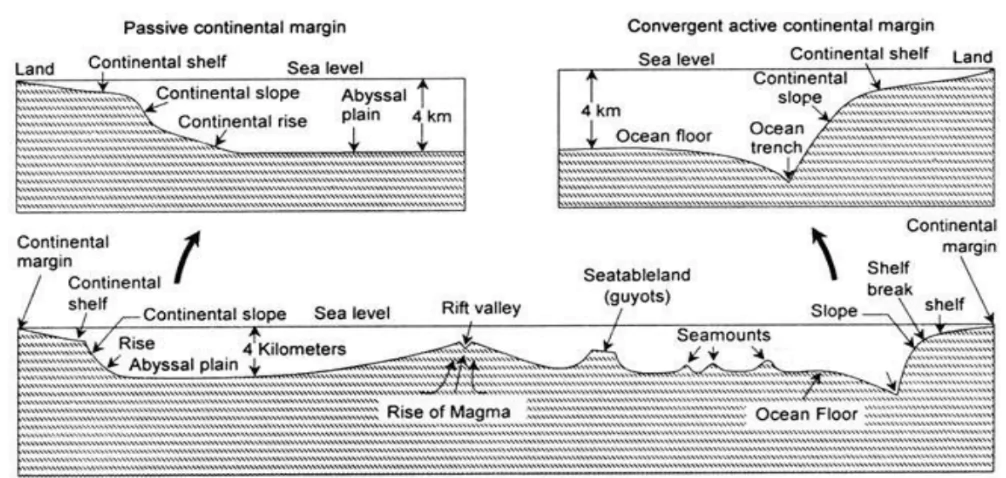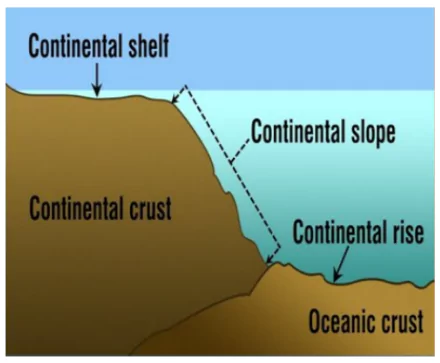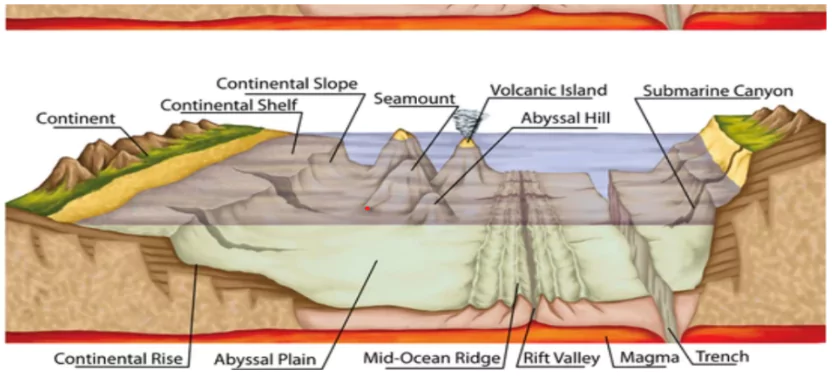![]() May 1, 2024
May 1, 2024
![]() 8348
8348
![]() 0
0
The bottom of the ocean is a fascinating world full of diverse relief features shaped by various natural processes like tectonic movements, volcanic activity, and sedimentation. From the expansive continental shelves to the mysterious oceanic trenches, each feature plays a crucial role in understanding the Earth’s geological history. Looking at these underwater places helps us learn more about our planet and how it’s always changing.



| A lagoon is a shallow body of water protected from a larger body of water (usually the ocean) by sandbars, barrier islands, or coral reefs. |
| Must Read | |
| Current Affairs | Editorial Analysis |
| Upsc Notes | Upsc Blogs |
| NCERT Notes | Free Main Answer Writing |
<div class="new-fform">
</div>
Latest Comments